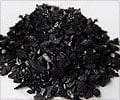
‘Increased concentrations of carbon dioxide increase photosynthesis, spurring plant growth.’
Tweet it Now
Studies have shown that increased concentrations of carbon dioxide increase photosynthesis, spurring plant growth. However, carbon dioxide fertilisation is not the only cause of increased plant growth - nitrogen, land cover change and climate change by way of global temperature, precipitation and sunlight changes all contribute to the greening effect. To determine the extent of carbon dioxide's contribution,the researchers ran the data for carbon dioxide and each of the other variables in isolation through several computer models that mimic the plant growth observed in the satellite data.
Results showed that carbon dioxide fertilisation explains 70 percent of the greening effect, said co-author Ranga Myneni, professor at Boston University in the US. "The second most important driver is nitrogen, at nine percent. So we see what an outsized role CO2 plays in this process," Myneni noted. The findings were published in the journal Nature Climate Change on April 25.
An international team of 32 authors from 24 institutions in eight countries led the effort, which involved using satellite data from NASA's Moderate Resolution Imaging Spectrometer and the US National Oceanic and Atmospheric Administration's Advanced Very High Resolution Radiometer instruments to help determine the leaf area index, or amount of leaf cover, over the planet's vegetated regions.
The extent of the greening over the past 35 years "has the ability to fundamentally change the cycling of water and carbon in the climate system," lead author Zaichun Zhu from Peking University in China noted.
Advertisement











